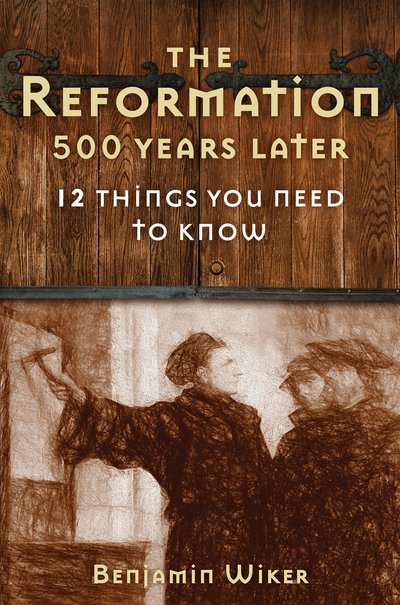Reformation Essentials
BOOK PICK: The Reformation 500 Years Later: 12 Things You Need to Know

The Reformation 500 Years Later
12 Things You Need to Know
By Benjamin Wiker
Regnery History, 2017
237 pages, $29.99 (hardcover)
To order: regnery.com
The 500th anniversary of Martin Luther’s infamous “95 Theses” has given occasion for a myriad books and reflections on what has popularly come to be called the Protestant Reformation. Amid the deluge of information and perspectives on the Reformation, author Benjamin Wiker seeks to nail down 12 points that every Catholic should know in The Reformation 500 Years Later: 12 Things You Need to Know. Wiker largely deals with what led to the Reformation and what followed, rather than the writings of Luther, Calvin, et al.
One good example is the fourth chapter, entitled “The ‘Bad Popes’ Really Were Bad.” This honest examination of a string of medieval popes does not ignore the less-than-savory characters. And Wiker identifies this as an important part of an honest examination of the Reformation.
“For Luther, and many others who became Protestants of one kind or another, the papacy was irredeemably bad, an assessment based upon the sad state of the popes at the time. […] As a reaction, Catholics sometimes overlook or underplay the reality of bad popes, or even pretend there’s been nothing but saints in the chair of St. Peter since Peter himself sat in it. For the sake of a much clearer understanding of the Reformation and of the papacy itself, we need to get to the actual truth” (53).
Wiker’s ability to provide deep and relevant analysis is clear in Chapter 6, titled “Why Islam Was Important to the Ref- ormation,” especially in light of the increasing Islamicization of Europe and Western society in general.
Historians widely regard the invention of the printing press as having played a pivotal role in the spread of Protestant ideas. There were many heretical sects in the first 1,500 years of Christianity, but none spread quite like Protestantism, and this is due in large part to the printing press.
The 10th chapter of Wiker’s book explores this question in further detail, with further insight: “The Invention of the Printing Press Was a Blessing (and a Curse) for the Reformation.” After observing that the printing press allowed Luther’s writings to spread like wildfire rather than remain an afterthought on the archbishop’s desk, Wiker writes that it also allowed for the spread of Calvin’s Reformed faith, which was detested by Lutherans, and Catholic tracts promoting the truths of the faith contra Luther. It is a fascinating insight not commonly observed.
The book is fantastically readable, as well. Wiker’s experience as a university professor seems to have given him a gift for smooth prose and effortless exposition. It is a wonderful resource for this 500th anniversary of the beginning of the Protestant Reformation.
Paul Senz writes from
Portland, Oregon.
- Keywords:
- book picks
- paul senz
- reformation
















